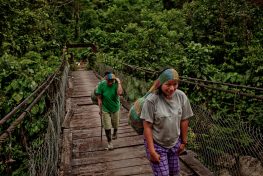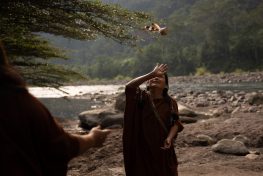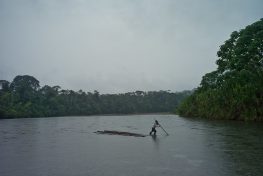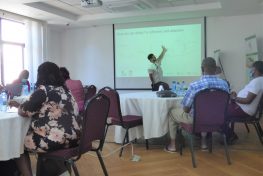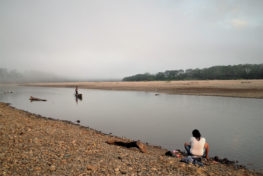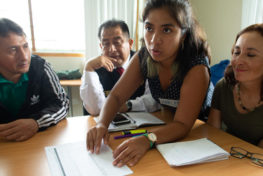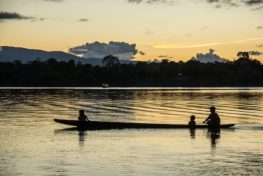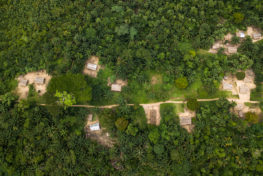
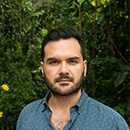
ABOUT THE WRITER
Follow JuanPaSarmiento
Juan Pablo Sarmiento Barletti (MA, MRes, PhD) carries out mixed-methods research on multiple aspects of the impact of natural resource extraction on forest-dependent communities, and of the participation of the latter in different related decision-making spaces. After lecturing in Social Anthropology at the universities of Durham and St Andrews in the United Kingdom between 2011-2016, Juan Pablo is now part of CIFOR's Global Comparative Study of REDD+ (seconded from the Pontificia Universidad Catolica del Peru). Based in the Lima hub, he coordinates multi-sited research on multi-stakeholder initiatives around land use and land use change in Brazil, Ethiopia, Indonesia, and Peru. The project examines the potential role of these initiatives in transforming BAU decision-making practices in order to create more equitable outcomes for forest-dependent communities. As part of his wider work, Juan Pablo is also interested in exploring the real and potential transgressions of indigenous rights throughout REDD+ readiness and implementation phases around the world, and the potential application of this framework as a pro-rights tool that enables environmental justice for indigenous communities. Juan Pablo has carried out more than 40 months of ethnographic research with indigenous Amazonian communities since 2007, during which he has collaborated and carried out action research with indigenous organizations on their life plans, approaches to well-being, and resource management practices. He is an Honorary Research Fellow at both the Department of Anthropology at Durham University and the Centre for Amerindian, Latin American and Caribbean Studies at the University of St Andrews.
BY THIS WRITER
Analysis
- 30 Dec 2022
Ten criteria for understanding the recognition of and respect for community rights
Study examines rights of Indigenous Peoples and local communities in the context of REDD+ in the Democratic Republic of the Congo
20 Dec 2022
Moving from gender-blindness to gender transformation in REDD+?
What safeguards have to say about gender equality and women’s inclusion
Analysis
- 17 Oct 2022
Doing better than ‘Do no harm’
How do the safeguards for REDD+ voluntary standards support the rights of Indigenous Peoples and local communities?
Analysis
- 17 Oct 2022
Doing better than ‘Do no harm’
Opinion
- 21 Apr 2022
Rethinking multi-stakeholder forums for marginalized groups
Fostering ‘counter power’ to ensure accountability
Analysis
- 8 Apr 2022
Can adaptive and reflexive learning support more resilient multi-stakeholder forums?
Sharing agroecological knowledge in Kenya
News
- 20 Dec 2021
Is the formalization of collective tenure rights supporting sustainable Indigenous livelihoods?
Insights from Comunidades Nativas in the Peruvian Amazon
Photo Essay
- 13 Nov 2020
New tool embeds equality into landscape management strategies in Peruvian Amazon
Collaborating to develop equitable participatory processes
Analysis
- 15 Oct 2018
Securing rights of indigenous peoples and local communities may curb global warming
We cannot restore tropical forests without restoring the rights of their traditional owners
